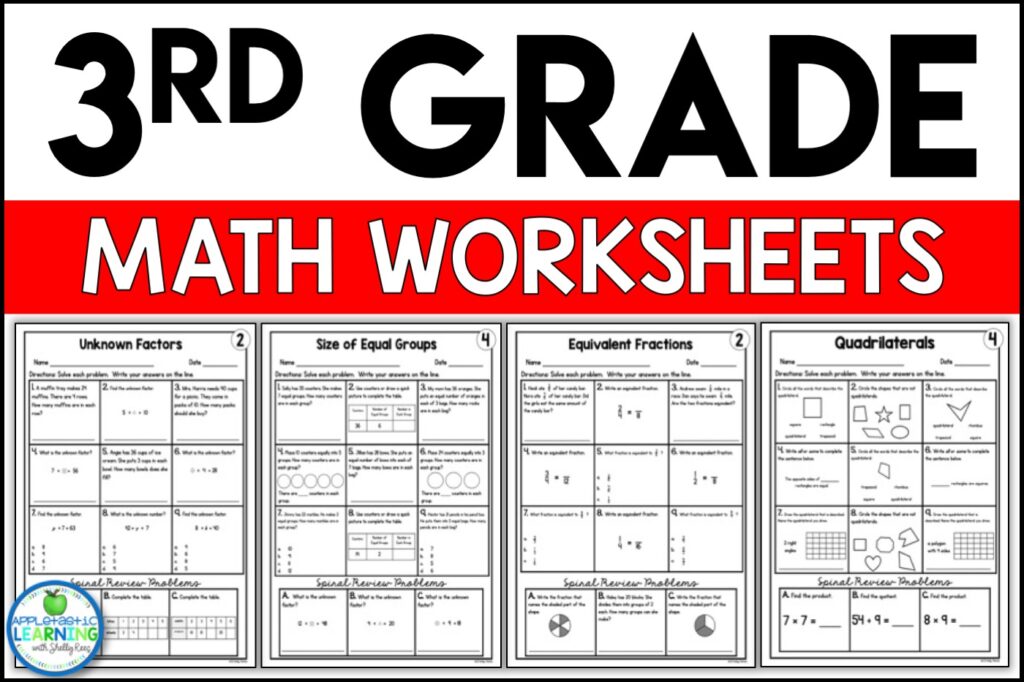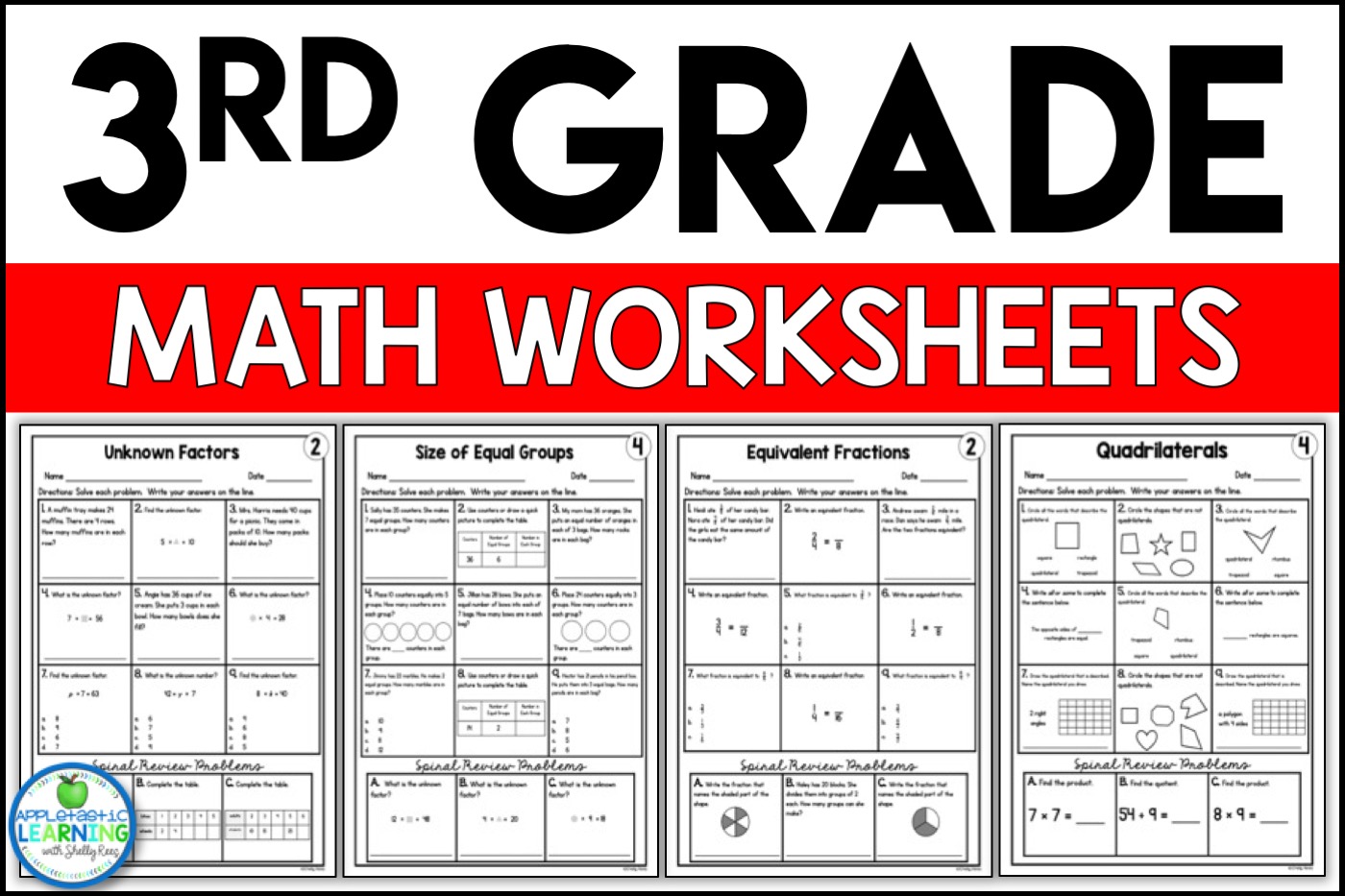
Unlocking Potential: A Comprehensive Guide to Supporting Your 3rd Grader’s Success
Third grade is a pivotal year in a child’s academic journey. It’s a year where foundational skills solidify, and new, more complex concepts are introduced. As parents and educators, understanding the unique challenges and opportunities that 3rd grade presents is crucial for fostering a positive and successful learning experience for your 3rd grader. This article will delve into the key areas of development for 3rd graders, offering practical advice and strategies to help them thrive both academically and socially.
The Academic Landscape of 3rd Grade
The 3rd grade curriculum typically focuses on building upon the reading, writing, and math skills acquired in earlier grades. Students are expected to read more complex texts, write longer and more detailed compositions, and master multiplication and division. This increased academic rigor can be challenging for some 3rd graders, and it’s important to provide them with the necessary support and encouragement.
Reading Comprehension: Beyond Decoding
In 3rd grade, reading instruction shifts from decoding words to comprehending the meaning of texts. Students are expected to identify the main idea, supporting details, and character motivations. To support your 3rd grader’s reading comprehension, encourage them to read a variety of genres, ask them questions about what they’ve read, and help them make connections between the text and their own experiences. Regularly reading aloud together is also beneficial. [See also: Strategies for Improving Reading Skills]
Writing Skills: Crafting Narratives and Informative Pieces
3rd graders are typically introduced to different types of writing, including narrative, informative, and persuasive writing. They are also expected to develop their grammar and spelling skills. Encourage your 3rd grader to write regularly, even if it’s just a few sentences each day. Provide them with opportunities to write about topics that interest them, and offer constructive feedback on their writing. Consider using writing prompts or journaling to spark their creativity. Focus on the writing process, not just the final product. [See also: Creative Writing Prompts for Elementary Students]
Mathematical Concepts: Mastering Multiplication and Division
Multiplication and division are key concepts in 3rd grade math. Students are expected to memorize multiplication facts and apply them to solve problems. They are also introduced to the concept of division as the inverse of multiplication. To support your 3rd grader’s math skills, use manipulatives, games, and real-world examples to make learning fun and engaging. Practice multiplication facts regularly, and help them understand the relationship between multiplication and division. Online resources and educational apps can also be valuable tools. [See also: Fun Math Games for Kids]
Social and Emotional Development in 3rd Grade
In addition to academic growth, 3rd grade is also a time of significant social and emotional development. Students are becoming more aware of their peers and their social standing. They are also learning to navigate more complex social situations and develop their own sense of identity. It is important for parents and educators to provide a supportive and nurturing environment that fosters positive social and emotional growth in 3rd graders.
Developing Social Skills: Navigating Peer Relationships
3rd graders are increasingly concerned with their peer relationships. They want to fit in and be accepted by their classmates. This can lead to challenges such as peer pressure, bullying, and social exclusion. Teach your 3rd grader about the importance of empathy, respect, and communication. Help them develop strategies for dealing with conflict and standing up for themselves and others. Encourage them to participate in extracurricular activities to broaden their social circle and develop their interests. Open communication about their friendships and social experiences is paramount. [See also: Building Strong Social Skills in Children]
Emotional Regulation: Managing Feelings and Impulses
3rd graders are still learning to regulate their emotions and impulses. They may experience frustration, anger, and anxiety more intensely than adults. Teach your 3rd grader healthy coping mechanisms for dealing with these emotions, such as deep breathing, mindfulness, and physical activity. Help them identify their triggers and develop strategies for managing their reactions. Model healthy emotional regulation yourself, and create a safe and supportive environment where they feel comfortable expressing their feelings. If emotional regulation is consistently difficult, seeking professional guidance may be beneficial. [See also: Techniques for Emotional Regulation]
Building Self-Esteem and Confidence
3rd grade is a crucial time for building self-esteem and confidence. Students who feel good about themselves are more likely to take risks, persevere through challenges, and succeed academically and socially. Provide your 3rd grader with opportunities to succeed, and celebrate their accomplishments, no matter how small. Focus on their strengths and talents, and help them develop a growth mindset, which emphasizes the importance of effort and learning over innate ability. Encourage them to try new things and step outside of their comfort zone. Positive reinforcement and a supportive environment are key to fostering self-esteem. [See also: Boosting Your Child’s Self-Esteem]
Practical Tips for Supporting Your 3rd Grader
Here are some practical tips for supporting your 3rd grader’s success:
- Create a consistent homework routine: Designate a specific time and place for homework, and ensure that your 3rd grader has all the necessary materials.
- Communicate with your child’s teacher: Stay in touch with your child’s teacher to stay informed about their progress and any challenges they may be facing.
- Read aloud to your child: Reading aloud is a great way to improve reading comprehension and vocabulary.
- Encourage your child to read independently: Provide a variety of books and magazines that are appropriate for their reading level and interests.
- Make learning fun and engaging: Use games, activities, and real-world examples to make learning more enjoyable.
- Provide positive reinforcement: Praise your child’s efforts and accomplishments, no matter how small.
- Help your child develop problem-solving skills: Encourage them to think critically and find solutions to problems on their own.
- Teach your child about time management: Help them learn to prioritize tasks and manage their time effectively.
- Promote healthy habits: Ensure that your child gets enough sleep, eats a healthy diet, and engages in regular physical activity.
- Be patient and supportive: Remember that every child learns at their own pace. Be patient with your 3rd grader and provide them with the support they need to succeed.
Addressing Common Challenges Faced by 3rd Graders
Even with the best support, 3rd graders can face various challenges. Understanding these challenges and having strategies to address them is essential.
Test Anxiety
The increased academic pressure in 3rd grade can sometimes lead to test anxiety. Help your child develop relaxation techniques, such as deep breathing, and emphasize that their worth is not defined by test scores. Practice tests can also help reduce anxiety by familiarizing them with the format and content. [See also: Overcoming Test Anxiety in Children]
Difficulty with Specific Subjects
If your 3rd grader is struggling with a particular subject, such as math or reading, seek extra help. This could involve tutoring, online resources, or working with the teacher to develop a personalized learning plan. Early intervention is key to preventing further frustration and academic setbacks. [See also: Identifying and Addressing Learning Difficulties]
Attention and Focus Issues
Some 3rd graders may have difficulty paying attention and staying focused. This could be due to a variety of factors, such as ADHD or simply a lack of interest in the subject matter. Create a quiet and distraction-free learning environment, and break down tasks into smaller, more manageable steps. Consult with a healthcare professional if you suspect that your child may have ADHD. [See also: Strategies for Improving Focus and Concentration]
The Long-Term Impact of a Strong 3rd Grade Foundation
The skills and knowledge acquired in 3rd grade lay the foundation for future academic success. A strong foundation in reading, writing, and math will help your child succeed in later grades and beyond. By providing your 3rd grader with the support and encouragement they need, you can help them reach their full potential and set them up for a bright future. Remember that fostering a love of learning is just as important as mastering specific skills. Encourage curiosity, exploration, and a lifelong pursuit of knowledge. Helping your 3rd grader navigate this important year will benefit them for years to come.

